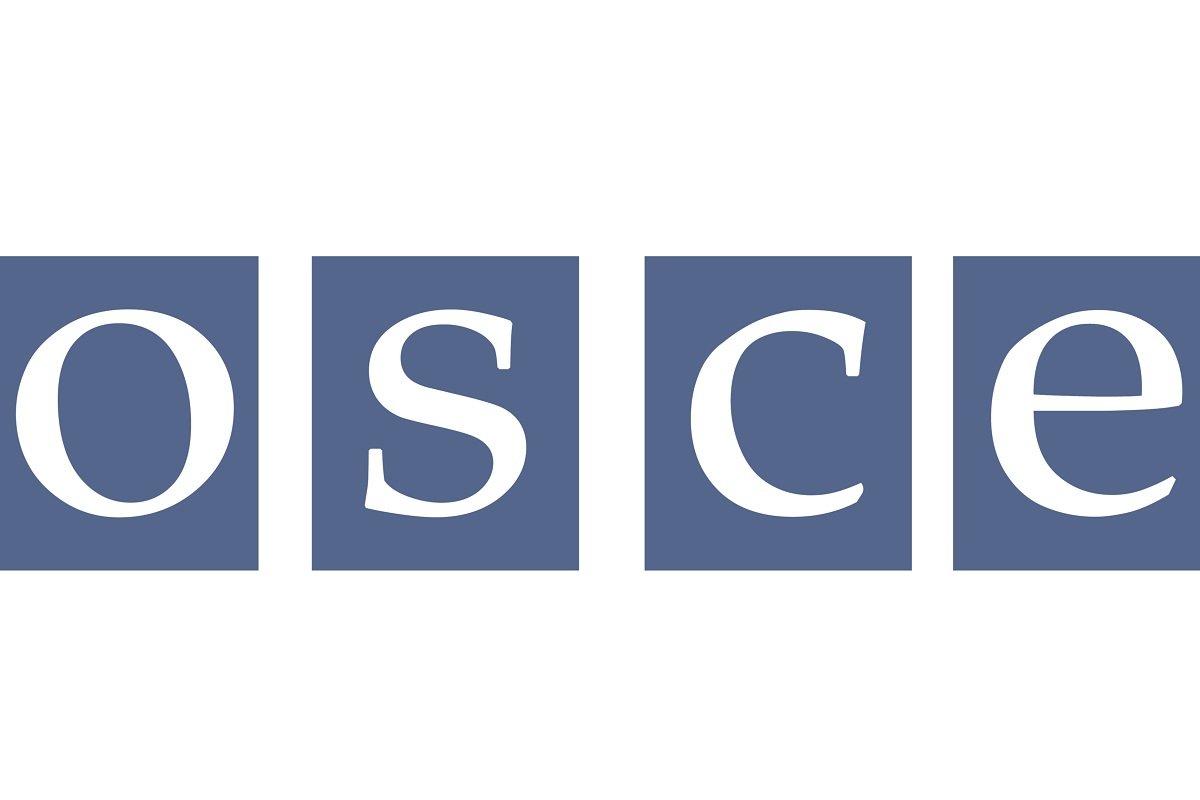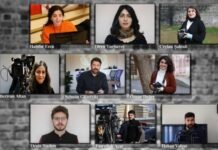An interim report of the Organization for Security and Cooperation in Europe (OSCE) cites a number of concerns regarding the democratic process ahead of upcoming elections in Turkey, including restrictions on freedom of assembly, association and expression as well as the ongoing arrest of one of the presidential candidates, the Peoples’ Democratic Party’s (HDP) Selahattin Demirtaş.
“The media landscape is dominated by outlets whose owners are considered affiliated with the government or depend on public contracts,” the report said.
The OSCE released an 11-page interim report on Friday following an invitation from Turkish authorities and based on the recommendations of a needs assessment mission (NAM) conducted May 8-10. The OSCE Office for Democratic Institutions and Human Rights (ODIHR) established an Election Observation Mission (EOM) on May 24 to observe the June 24 early presidential and parliamentary elections.
The ODIHR EOM, headed by Ambassador Audrey Glover, consists of a 12-member core team based in Ankara and 22 long-term observers deployed throughout the country from May 29. Mission members are drawn from 23 OSCE participating states. The ODIHR has requested participating states to second 350 short-term observers to observe election day procedures.
The OSCE’s interim report stated: “So far, parties and candidates have campaigned extensively using a variety of traditional means such as rallies, campaign stands, posters, banners, flags, canvassing and using vehicles with loudspeakers. Social media is used extensively as a means to reach out to young voters as well as to overcome restrictions on campaigning imposed in some provinces. As the campaign coincides with the month of Ramadan, contestants use the traditional iftar dinners and late evening hours to campaign. Despite a prohibition by law, some candidates campaigned abroad.”
“The tone of the presidential campaign has been confrontational reflecting the general polarization. While all candidates have used harsh and denigrating rhetoric against each other, the incumbent president has repeatedly referred to other candidates and parties as supporters of terrorism,” underlined the report.
“On 28 May, the incumbent president launched criminal and civil suits, including for insult, against the CHP candidate for statements he made in a campaign speech. On 9 June, [the] CHP candidate filed a lawsuit against the incumbent president demanding compensation for expressions containing slander and grave insult,” the report said.
Stating that in five provinces, bans on assembly, public gatherings and press statements have been imposed, the report has added that “Opposition parties informed the ODIHR EOM that they have been obstructed in campaigning. The HDP informed the ODIHR EOM about a pervasive atmosphere of fear, attacks on their party and campaign offices and stands, detentions of party activists, obstruction of campaign activities and being subject to selective application of campaign rules.”
Reminding that the Turkish Constitution contains a general provision regarding the right to freedom of expression but also restrains it by allowing restrictions on media, including under the Anti-Terror and Internet Laws, the report said: “The Criminal Code contains broad defamation provisions, including for offending the nation and the State, public figures and the president. Furthermore, recent changes to the Law on the Establishment of Radio and Television Enterprises and their Media Services (Law on Broadcasting) regulate online media. According to the Ministry of Interior, from 28 May to 11 June, 1,199 social media users were found propagating, praising and associating themselves with terrorist organizations, using hate speech against the indivisible unity of the state and the security of the society, of whom 643 have been legally charged. The OSCE Representative on Freedom of the Media (RFoM) has repeatedly called on the authorities ‘to engage in a fundamental reform of the laws that criminalize journalistic work.'”
“The media landscape is dominated by outlets whose owners are considered affiliated with the government or depend on public contracts. There is a large number of media outlets, but they remain polarised. Television remains the main source of information, followed by the online media outlets, as well as social media. The Internet penetration rate was 66,8 per cent in 2017, and 80,7 per cent of households had access to the Internet at home,” said the OSCE.
Eight international organizations, including the OSCE, will observe Turkey’s presidential and general elections on June 24. On election day, the observers will mainly monitor voting procedures such as counting, casting and recording votes without interrupting polling boards.
The observers will prepare a report by monitoring campaigning process, election participation and whether international election standards are upheld.
Six candidates are contesting the presidential race, while eight political parties are taking part in the parliamentary elections.
















